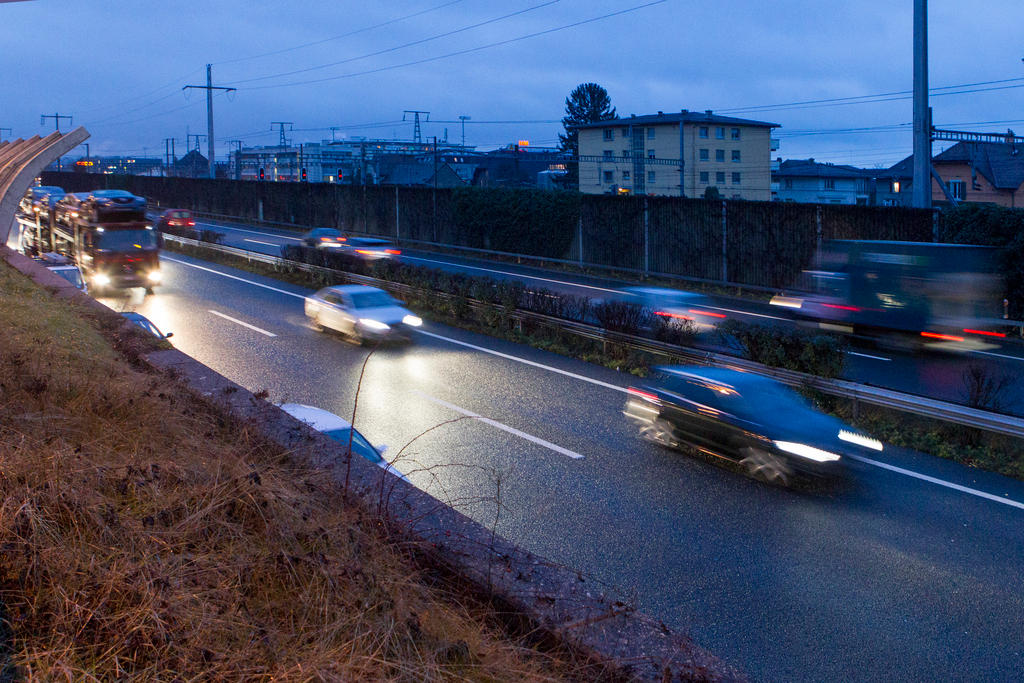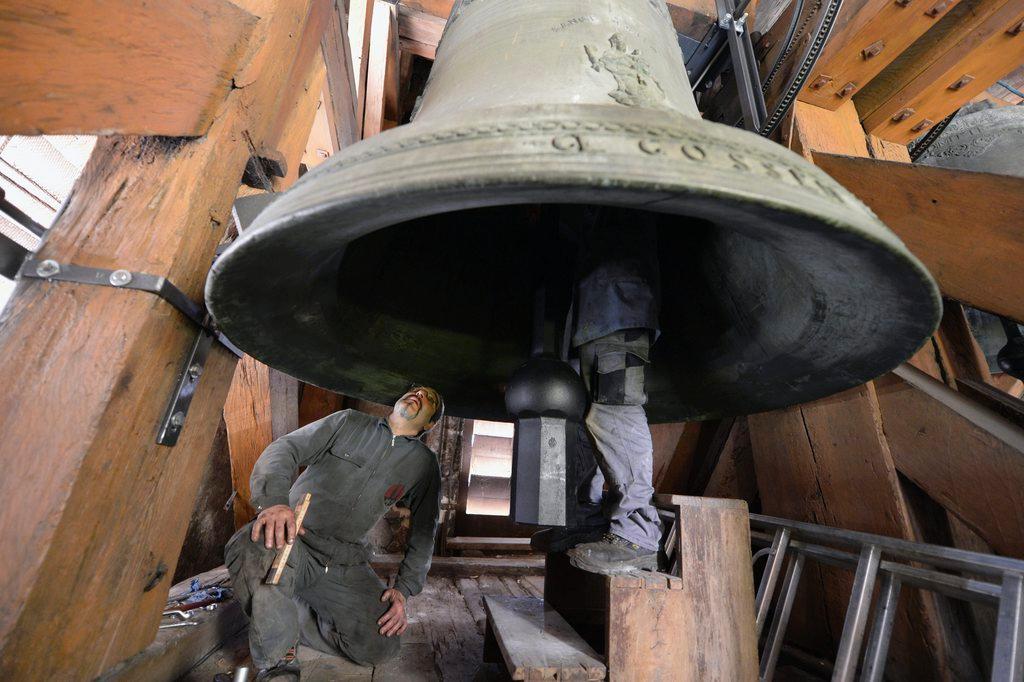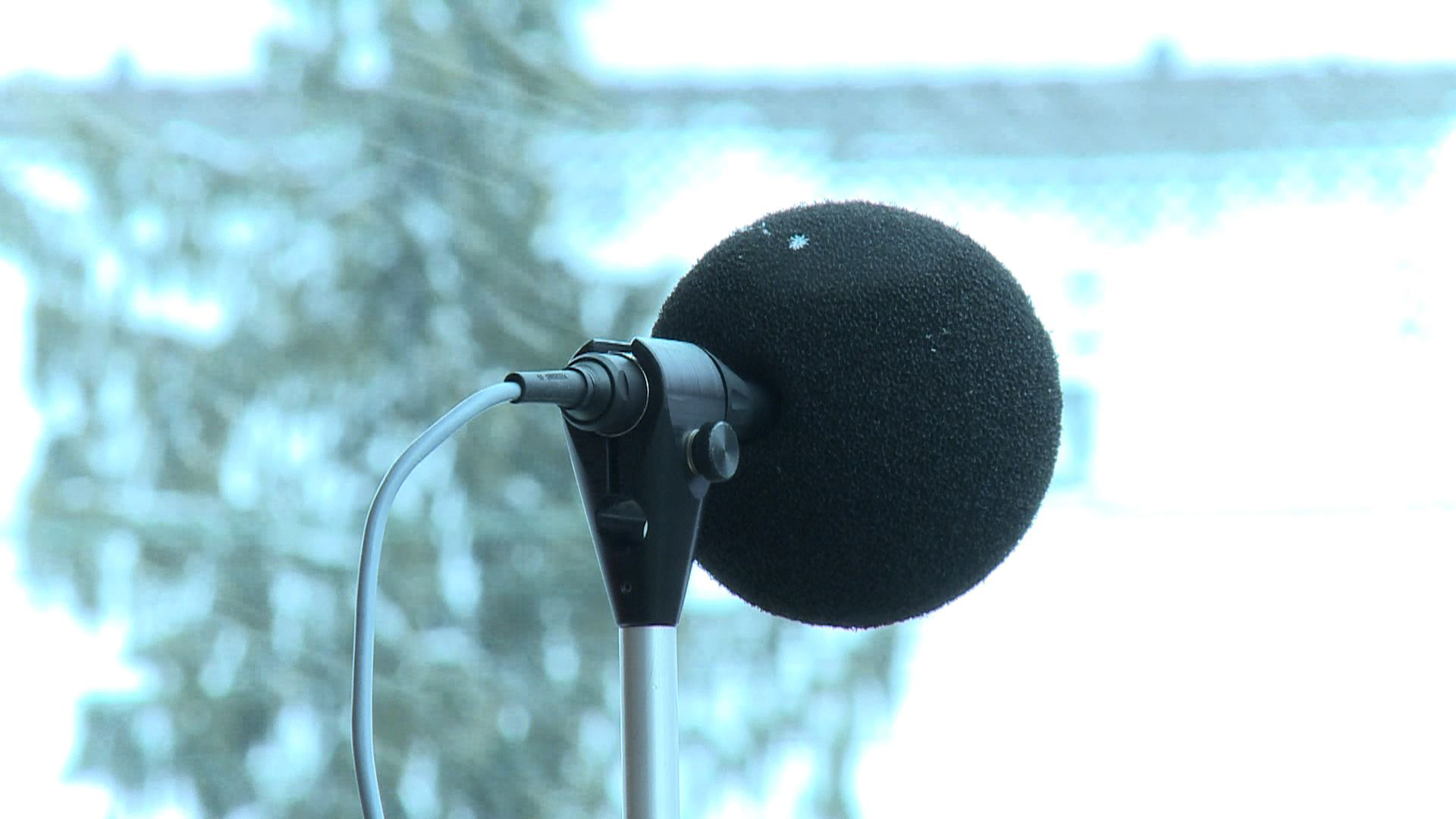Traffic noise increases risks of heart illnesses and diabetes

Traffic noise from cars, lorries, trains and planes can have negative health consequences, such as increased risk of heart-related illnesses and diabetes, according to a long-term study of the impact of noise pollution on the Swiss population.
Researchers taking part in the SiRENE study, funded by the Swiss National Science Foundation (SNF), found that road noise had the greatest impact on cardio-vascular illnesses.
The risk of a heart attack rose by 4% when noise levels at home increased by ten decibels, they found. Traffic noise also increases the risk of hypertension and heart failure.
“Episodes of night-time noise, which regularly disturb sleep, appear to be especially critical,” said Martin Röösli, head of the SiRENE study and professor at the Swiss Tropical and Public Health Institute (TPH) in Basel.
“Noise disturbance levels lower than those considered acceptable have already had negative consequence on health.”
Traffic noise also increases the risk of diabetes, according to a study carried out by the team on 2,631 people who were exposed to varying noise levels.
Stress hormones
Nicole Probst-Hensch, director of epidemiology and public health at the TPH, said two mechanisms played an important role in this phenomenon.
“The chronic secretion of stress hormones influences a person’s insulin metabolism. At the same time, we know that someone’s general metabolism suffers long term from the negative effects of sleep-related problems.”
The researchers hope the Swiss authorities will use their results to adapt noise protection tolerance levels. Dealing with traffic noise costs an estimated CHF1.8 billion ($1.85 billion) a year for the Swiss population.
The SiRENE project has been running for three years and brings together a consortium of researchers from the TPH, the Swiss Federal Laboratories for Material Science and Technology (EMPA), n-Sphere, Basel University Psychiatric Hospital and the Federal Office for the Environment. The results were presented during the 12th Congress of the International Commission on Biological Effects of Noise (ICBENExternal link), held in Zurich.

In compliance with the JTI standards
More: SWI swissinfo.ch certified by the Journalism Trust Initiative




You can find an overview of ongoing debates with our journalists here. Please join us!
If you want to start a conversation about a topic raised in this article or want to report factual errors, email us at english@swissinfo.ch.